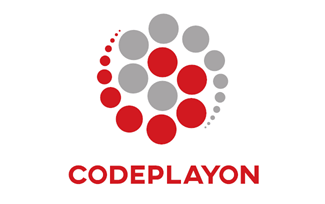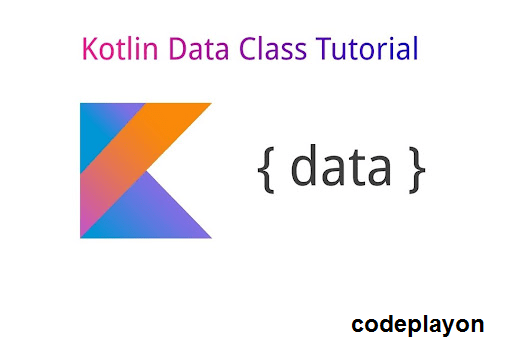Kotlin vs Java performance Which is the Better
In this Artcile we disscion on Kotlin vs Java performanceWhich is the Better Option for Android. The Kotlin app development community continues to grow. In 2017, Google made Kotlin the second official language for Android application development. The demand for the programming language has increased dramatically in both the enterprise and developer community. The language has been praised by Google as a modern and pragmatic programming language.
What is Kotlin? ( Kotlin vs Java performance)
Table of Contents
Kotlin vs Java Kotlin, is a frozenly typed programming language and is run on JVM. Kotlin is a general-purpose language that introduces functional features to facilitate Java interoperability. Kotlin was created out of the desire to increase productivity. The objective was to make coding easier and more efficient.
Kotlin’s central goal is to allow mixed-language projects. Kotlin also improved syntax as well as expressions, abstractions, and expressions. Kotlin is compatible with Java and reduces unnecessary boilerplate. This is a major win for Android developers.
Kotlin 2019 – Where is the Language Now?
Kotlin has experienced explosive growth in Android development since Google I/O 2017. The conference was only held twice and has now become an institution within the developer community.
Kotlin has been committed to accessibility on all platforms. However, multi-platform programming is just the beginning of a more innovative approach: sharing code across all platforms. The release of Kotlin 1.3 has brought about improvements in Kotlin/Native that will allow for multi-platform convenience. Android developers now have one integrated development environment (IDE), which allows them to use Kotlin across all platforms. Mobile app scaling is now easier with the new release. This latest release supports code reuse, which allows for time and effort savings on more difficult tasks.
Kotlin/Native makes Kotlin source code available to be compiled into standalone binaries that can be used on multiple operating systems.
2019 will see more enterprise leaders migrate to Kotlin, or plan to do so in 2019. Many mobile products, including Evernote, Pinterest, Twitter and AirBnB are switching to Kotlin. Although cross-platform Kotlin development is not yet widespread, many industry leaders are taking notice of the many advantages Kotlin offers.
Also Read : Flutter Tutorial for Android
Java’s End? ( Kotlin vs Java performance)
Developers have mixed opinions.
Java is a well-respected programming language that has many open-source tools and libraries for developers. Java, like all languages, is not perfect and can be complicated for developers. Kotlin, in fact, will solve common programming problems and help improve the Java ecosystem.
Kotlin has been a stable and consistent development platform for Android Studio over the past two years. Many developers believe Kotlin will replace Java in the future for Android development. Experts see Java and Kotlin coexisting without either one being superior.
Most people find Kotlin’s strengths to be more important than its drawbacks. Java has some limitations that can hinder Android API design. Kotlin is lightweight, cleaner, and much less verbose than Java, particularly when it comes to writing callbacks, data class calls, and gettingters/setters. Kotlin was created to solve API design problems and improve Java models.
Kotlin addresses some of Java’s weaknesses
Read Also: Android Tutorial with java
Brevity ( Kotlin vs Java )
Many developers love Kotlin’s conciseness. Java isn’t known for this quality, but it is something that Kotlin excels at. However, readability should always be the priority. Although Kotlin’s concise nature makes it easier for developers and reduces the chance of error, Kotlin does not practice concision just for the sake of concision. Boilerplate code can be difficult to read, which leads to more bugs and wasted effort trying to identify them.
Kotlin vs Java examples :-
public class ABC {
public static double calculate (double a, String op, double b) throws Exception {
switch (op) {
case "add": return a + b;
case "subtract": return a - b;
case "multiply": return a * b;
case "divide": return a / b;
default: throw new Exception();
}
}
}
Above is a simple calculator function written in Java. For comparison, here is the same calculator in Kotlin:
fun calculate (a: Double, op: String, b: Double): Double {
when (op) {
"add" -> return a + b
"subtract" -> return a - b
"multiply" -> return a * b
"divide" - > return a / b
else -> throw Exception()
}
}
Although it may not seem that much, the Kotlin version is half the code required to program the Java function. Productivity is dependent on your ability to communicate clearly. It is easier to write large projects when developers are given more power for each line of code. Kotlin doesn’t ignore comprehension just because it is concise. The syntax is clear, easy to understand, and still contains substantial information.
Interoperability ( Kotlin vs Java )
Kotlin’s main purpose is interoperability. The project was designed to leverage existing knowledge and expertise in order to make all libraries available to Kotlin programmers. Developers are able to create modules in Kotlin which work seamlessly within Java code. A Kotlin compiler can allow both languages to be used in simultaneously within the same project by emitting the Bytecode.
Inbuilt Null Safety
The null safety feature in Kotlin’s Type System is built into Kotlin. Android developers make many mistakes due to the infamous NullPointerException. Android uses null to indicate the non-appearance of a value. However, null can easily cause an app to be destroyed. Kotlin addresses this issue by providing inherent null safety. This feature saves developers the time of writing additional code to fix the problem.
There are no raw types
Raw types were widely used before generics. Raw types are able to allow backward compatibility. However, raw types can throw an exception and the error will be thrown during execution and not compilation. Kotlin doesn’t allow raw types and produces more type-safe codes.
No exceptions to the check
Java’s checked exception feature can cause problems. When the compiler requires the caller to a function catch or throw an exception, it is called a checked exception. Checked exceptions are usually unnecessary and create empty catch blocks. Developers find imaginary checked exceptions. Because empty catch blocks force them to go through code to find an exception. Kotlin remove them completely, which reduces loquacity, and improves type safety.
Read Also :- Android Solution With Java
Developers Should Learn Kotlin ( Kotlin vs Java )
There are many opinions.
Developers don’t have to switch to Kotlin. However, they will eventually come across the language. It will be easy to learn Kotlin if you are already proficient in Java. It is expected that the language will have a huge impact on app development. Therefore, it is a good idea to get to know the basics. A developer’s ability to learn new techniques and develop in a modern way will help them grow.
Kotlin Switching to Business Benefits ( Kotlin vs Java )
It is not an easy decision to redo large parts of a project using a new programming language. However, Kotlin has two essential business benefits that will impact the decision.
Reduced project timelines
Kotlin’s simplicity benefits allow it to solve more problems using fewer lines. Kotlin’s concise nature makes it easier for developers to understand and modify code faster, which can help reduce time-to-market.
Fewer App Crashes ( Kotlin vs Java )
Kotlin products have fewer lines than Java programs. In addition to reducing development time, less code can also be used to support maintenance. The code is easier to read and less space for bugs. This makes it easier for developers to find bugs, which leads to fewer system crashes and failures.
Read Also : Kotlin Tutorial for Android
Making the Switch from Java to Kotlin ( Kotlin vs Java )
When deciding whether Kotlin is the right platform for your mobile app, there are two important things to remember. First, ensure that your product team is prepared to switch. It is a learning process to introduce a new language, revise and optimize your project. It is important that your team is prepared to handle any challenges during the learning process. You should also consider how the switch will affect your existing architecture. Programming languages changes can result in the creation, deletion, and merging or modification of certain artifacts and classes. Your product’s architecture could be affected. It is crucial to ensure that your mobile architecture can adapt to the needs of your product.
Kotlin addresses some Java issues ( Kotlin vs Java )
Kotlin addresses a number of Java-related issues: Kotlin vs Java
- controls null references by using the type system.
- No raw types
- Invariant Arrays in Kotlin
- Kotlin uses function types instead of Java’s SAM conversions
- Use site variance with or without wildcards
- Kotlin has not checked exceptions
Java has something that Kotlin doesn’t
- Checked exceptions
- Primitive types that do not belong to classes. Although primitives are used where possible in byte-code, they are not always explicitly available.
- Static members can be replaced by companion objects, top level functions, extension functions or @JvmStatic.
- Wildcard types have been replaced by declaration site variance, and type projects.
- Ternary-operator A? b : The if expression is used in place of c.
Java doesn’t have what Kotlin does ( Kotlin vs Java )
- performant custom control structures ( Lambda expressions + Inline functions )
- Extensions
- Null-safety
- Smart casts
- String templates
- Property
- Primary constructors
- First-class delegation
- Inference for variable and property type
- Singletons
- Type projections & Declaration-site variance
- Range expressions
- Operator overloading
- Companion items
- Data Classes
- Separate interfaces to read-only and mutable collections
- Coroutines
Also See More Search Qurey
Kotlin vs Java performance 2021
Kotlin vs Java performance Android
Kotlin vs Java for beginners
Kotlin vs Java Reddit
Kotlin vs Java codeplayon



